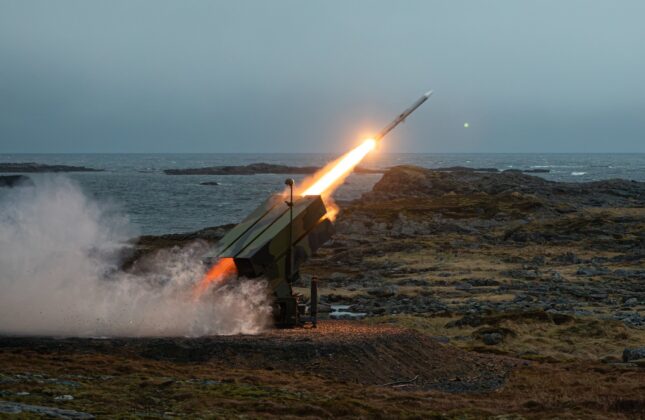
Raytheon Co. has been awarded a $698.9 million contract by the U.S. Army for the production of NASAMS (National Advanced Surface-to-Air Missile System) fire units intended for Taiwan under the Foreign Military Sales (FMS) program.
According to the Department of War’s contract announcement, the award includes the procurement of complete NASAMS fire units, with work to be conducted entirely in Tewksbury. The estimated completion date is February 28, 2031.
“Raytheon Co., Tewksbury, Massachusetts, was awarded a $698,948,760 firm-fixed-price contract for the procurement of National Advanced Surface to Air Missile System fire units,” the notice said. “Work will be performed in Tewksbury, Massachusetts, with an estimated completion date of Feb. 28, 2031.”
The Department added that the full contract value—$698,948,760—is funded through Fiscal Year 2026 Foreign Military Sales (Taiwan) funds and was obligated at the time of the award.
The contracting activity is the Army Contracting Command, located at Redstone Arsenal, Alabama. The contract number is W31P4Q-26-C-0002.
NASAMS is a medium-range air defense system jointly developed by Raytheon and Norway’s Kongsberg Defence & Aerospace. The system integrates U.S.-made AIM-120 AMRAAM missiles with a multi-mission radar and a command-and-control suite to intercept fixed- and rotary-wing aircraft, cruise missiles, and drones.
The system has been fielded by multiple U.S. allies and partners and is in active use defending high-value sites, including Washington, D.C. It has also been delivered to Ukraine under previous U.S. military aid packages and has seen combat use in defense of major urban areas.
Although the Department of War did not specify the number of systems to be delivered, prior FMS announcements to Taiwan regarding NASAMS have referenced six fire units. Each fire unit typically consists of a command post, radar, and multiple launchers equipped with AMRAAM missiles.
The delivery of NASAMS is expected to strengthen Taiwan’s layered air defense capabilities amid growing cross-Strait tensions. The U.S. has consistently emphasized its commitment to helping Taiwan maintain a credible self-defense posture.